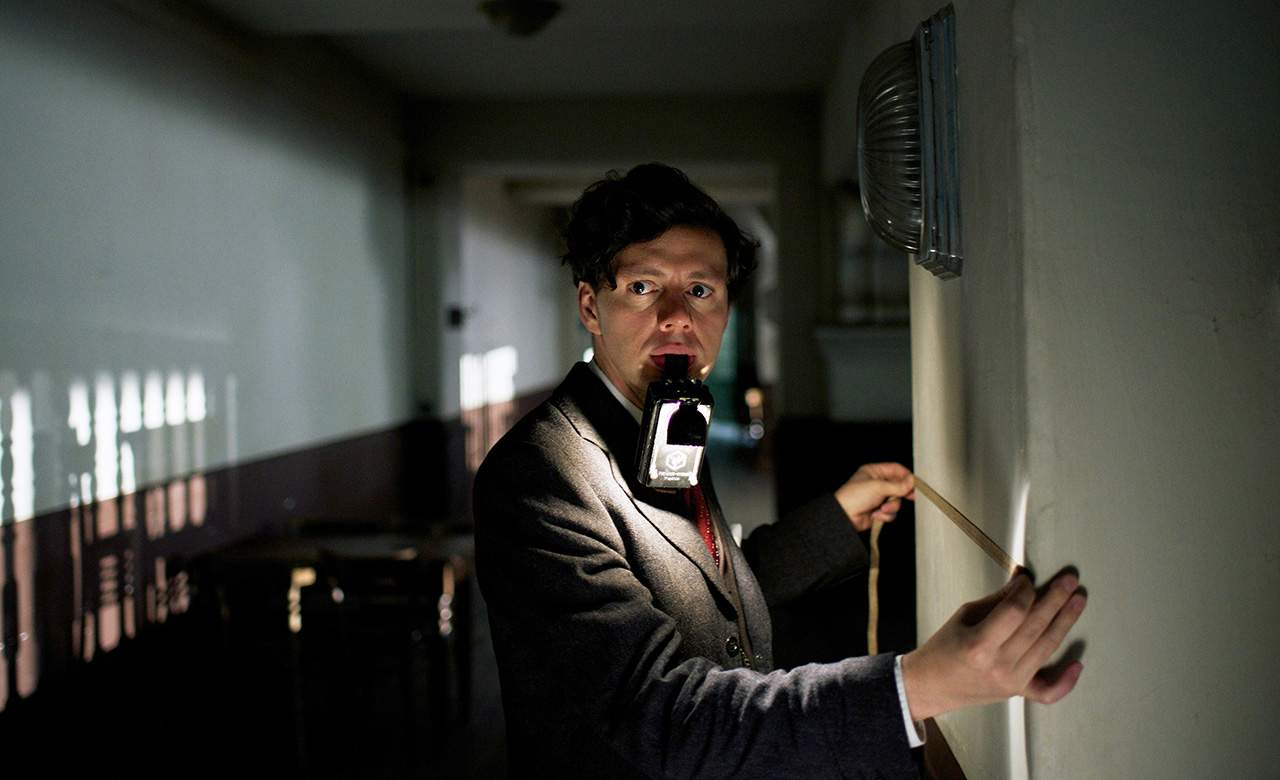13 Minutes
The true tale surrounding the greatest act of WWII heroism that never was.
Overview
What if a bomb had taken out Adolf Hitler in 1939? That's the question that haunts Georg Elser (Christian Friedel) after his assassination attempt fails due to timing. He hatched a plot, built explosives and set a timer, but it all went off too late. As the English-language name of the film that unfolds his story foreshadows, just under a quarter of an hour proved the difference between the past everyone knows and a World War II-free alternate timeline.
In telling his tale, those titular 13 minutes are influential; however this measured, methodical feature is more concerned with the state of affairs that led Elser to such drastic deeds, instead of a well-worn account of what happened next. How did a mild-mannered pacifist and seemingly ordinary German citizen become the would-be killer of the 20th century's most despised figure? What injustices did he witness? What paved his path towards trying to save his country through a potentially revolutionary act of violence?
Again, many of the broad strokes of life at the time are known, but 13 Minutes filters a familiar situation through one man's experience. After the blast, Elser is detained, interrogated and tortured by the Gestapo, his brutal treatment intercut with his preceding years. First, he's a carefree musician; then, he's a carpenter trying to save his family farm; next, he's fooling around with a married woman (Katharina Schuttler). Around him, society and sentiment changes under the Nazi party's influence.
Best known as the director of Downfall, the Hitler film that launched a thousand memes, Oliver Hirschbiegel has explored this chapter of history before. That he does so again in meticulous detail isn't surprising, nor are the handsome images he works with. Though his last feature — the abysmal Diana — might indicate otherwise, the filmmaker shows an assured hand with conflict-riddled, based-on-real-life material.
Indeed, 13 Minutes looks, sounds and feels the part. Yet it's never anything more than interesting, rather than gripping. Workmanlike best describes Hirschbiegel's effort, hitting all the right notes but playing a standard tune rather than a truly affecting melody. Given the rollercoaster ride his last decade of filmmaking has provided, perhaps he's just happy to play it safe. To the director, splitting the difference between the intense heights of his biggest hit and the considerable lows of his most recent biopic probably doesn't seem like such a bad outcome.
Thankfully, the committed, charming Friedel is marching to his own beat, his performance as impassioned as the rest of the movie is restrained. That the film around him is just competently going through the motions of an important story doesn't seem to sway his complex portrayal.
Of course, shining a bigger spotlight on a figure barely remembered in the official record, let alone seen in cinema (with a 1989 film called Seven Minutes Elser's only other big screen depiction), is a feat worth applauding regardless of the muted end result. And that's what lingers in 13 Minutes: the true tale surrounding the greatest act of WWII heroism that never was.





